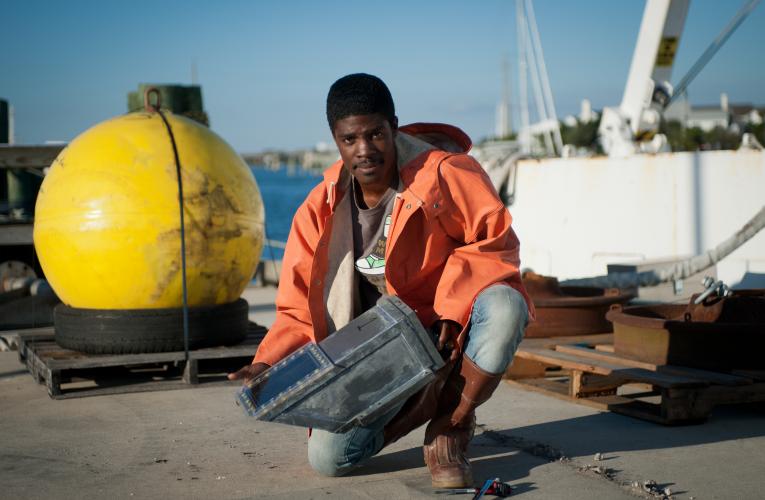DURHAM, N.C. – Kersey Sturdivant, McCurdy Visiting Scholar at the Duke University Marine Lab, has been awarded a two-year National Science Foundation (NSF) Ocean Sciences Postdoctoral Research Fellowship.
NSF awards the prestigious fellowships annually to promising young scientists in recognition of their early accomplishments and with the expectation that the fellowship experience will strategically prepare them for positions of scientific leadership. The fellowships carry a stipend of up to $85,000 a year.
A benthic ecologist by training, Studivant studies coastal hypoxia and its effects on trophic dynamics, and is working to develop new marine technologies that observe and record physical and biological processes as they occur on the ocean floor.
Still images and time-lapse movies from WormCam, an underwater camera he helped create with NSF funding while he was a PhD student at the Virginia Institute of Marine Science, is already being used at research sites across the country. It help scientists better understand the important role that burrowing animals play in mixing seafloor sediments, and the physical forces that control erosion, deposition, and transport of seafloor sediments, nutrients and contaminants.
Sturdivant is also part of the team behind a new initiative called OpenCTD, which aims to produce design plans that will allow anyone to build their own conductivity, temperature and depth (CTD) instrument for around $200 from off-the-shelf parts. CTDs are essential for conducting marine research, but typically cost thousands of dollars. Sturdivant and his colleagues hope their bargain-priced DIY model will make oceanographic research accessible to more scientists, students and enthusiasts. Development of the new CTD is being funding through online crowdsourcing. You can learn more, or pledge funds, at http://www.rockethub.com/projects/26388-oceanography-for-everyone-the-openctd.
Sturdivant has been a McCurdy Visiting Scholar at the Duke Marine Lab since August 2012. Prior to that, he was research coordinator at the Cordell Bank National Marine Sanctuary, a 449-square-mile marine wildlife preserve located off the coast of Northern California.
He received his PhD from the College of William & Mary’s Virginia Institute of Marine Science and his Bachelor of Science degree from the University of Maryland-Eastern Shore.
